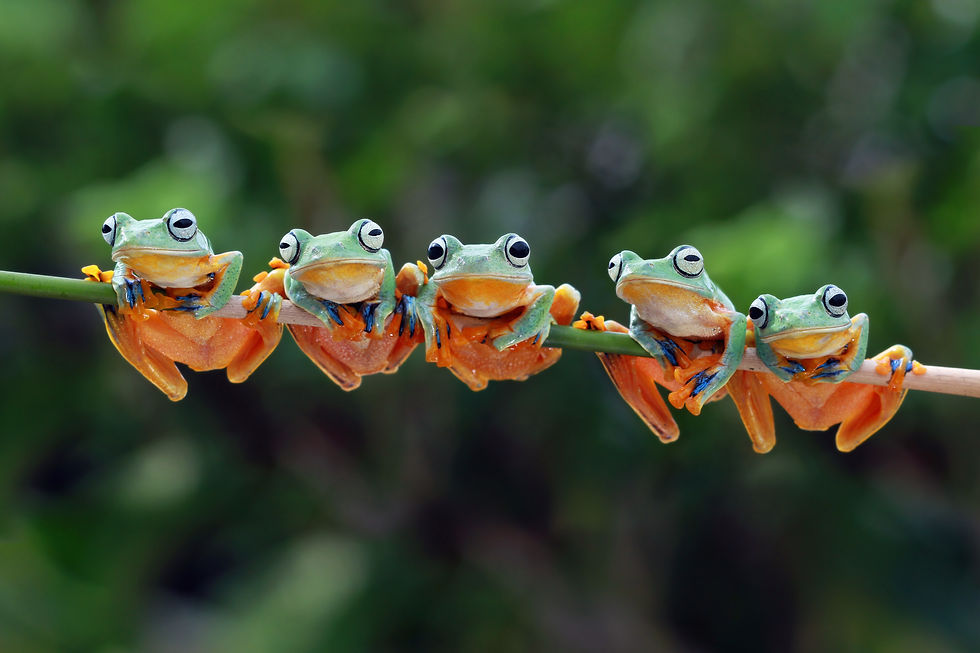Wanted: Adultier Adults
- Kemia Sarraf
- Jun 27, 2021
- 4 min read
Updated: Jan 17, 2023

Dear Everyone:
Hitch a ride when you need to. Provide safe passage when you can.
~~
For the record, I am a world-class catastrophizer.
I have just enough life lived, just enough education, know just enough history, and contain just the right sprinkling of paranoia-driven conspiracy to make my brain extraordinarily dangerous.
Of course, when the worst-case doesn’t play out I never stop and say, “well, whew! I guess I overreacted!” Oh no. I conveniently forget my dark and twisty predictions of doom. Or I assume The Worst is biding time, building momentum.
World. Class.
~~
I know for an absolute fact I’m not alone in this. Millions of us are intensively training for the Catastrophe Olympics -- y’all know who you are.
There’s no blame or shame in it. We all have been living through times of almost unrelenting toxic stress and trauma – both Big T and little t. And one thing is certain: trauma primes our brains for hijack, convinced that every encounter is a Face-Eating Bear.
Too often, though, we give our feelings free rein. And too often (especially right now), the traumas we've experienced are showing up as anger, avoidance, or apathy.
All this has me asking more and more often: Have I fact-checked my feelings?
What is the story I’m telling myself? What are the roots of that story? Can I imagine an alternative version? What facts support my version? What facts might support the other version? What does it look like when the best version of me shows up for this moment? What do I choose?
It is a simple check-in. And like most simple exercises, it takes noticing and practice to become reflexive.
~~
We're at the tail end of June (thus formally ending The Month of Re) and yet...
We remain in a period of intense adjustment and realignment, and no one has The Playbook for how to do this right. People pretend, but nobody knows -- everyone is pretty much winging it right now. We’re all looking around for the adult in the room, and it’s terrifying to realize that we.are.it.
(Frankly, I’m holding out for an adultier adult…)
On the upside, it seems we’ve finally, collectively reached a point where everyone is willing to shrug and say, “yep. I get it. We all are carrying some trauma.” This recognition is an important step.
And it begs the question: Now what?
~~
Traumas, both Big and little, often show up in disproportionate, out-of-character reactions. They can surprise us in their intensity, or worry us in their lackluster response. There is value in learning to recognize and hold space for others in these moments, and to leaning in and getting curious about how they're really doing, and how they are making sense of their world.
The thing is – whether we’re talking Big T trauma or the cumulative, compounding impact of little t traumas – trauma demands one of two things: release or discharge.
Release (mitigation and healing) can happen in a variety of ways involving any number of strategies. Always it involves connection with others, restoration of control and choice, and being heard, valued, and believed.
This is slower-closer work; it takes time (sometimes more, sometimes less) and intention. And it is always worthwhile, both for the individual and for society.
The alternative is unmitigated trauma which ultimately amplifies harm. Trauma discharged results in self-harm and harm to relationships, reputation, and professional standing. It also distorts and damages worldview, sense of safety, and sensitizes the body's alarm system.
In the extreme, trauma becomes a lethal weapon discharged against self or others.
~~
If we accept that, to varying degrees, we all are carrying some trauma, then it becomes possible for each of us to learn some basic skills in how to best respond and mitigate with and for each other.
Here's a universal truth: when we are eyeballs deep in strong emotion, never have the words "calm down" or the presentation of "facts" done anything but encourage doubling down. What does actually help is connection with someone willing to hold space, willing to allow those feelings their moment in time, and willing to suspend judgement and get genuinely curious until we are able to sift through and separate fear from truth.
~~
I want to reiterate that I am a huge proponent of ALL needed points of intervention: Therapy can work miracles. Medication saves lives. Groups provide support. Exercise releases endorphins (so I'm told). Nutrition and sleep are central to balance. Meditation and gratitude and mindfulness and prayer provide grounding. Humor (even the dark and twisty kind) is healing.
Chocolating helps.
And us. We help, too.
The best thing for a human in pain is another human who is willing to listen, hold space without judgement, and get curious about how they’re making sense of the world.
~~
Hitch a ride when you need to. Provide safe passage when you can.
Both are acts of Grace.
This is adulting.
So is making space for play and joy and rest and restoration.
And despite it being monsoon season where I live, I’m still reminding y’all: Hydrate.
More soon,
Dr. K

Commentaires